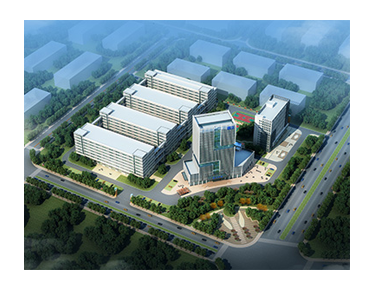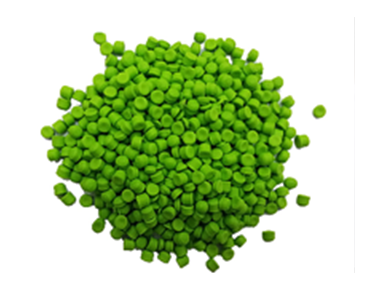Industry news
BASF's Zhanjiang base in Guangdong will become its largest chemical project in Asia
Release time:2019/3/19 11:20:00
Author:admin
Clicks:
BASF's Zhanjiang base in Guangdong will become its largest chemical project in Asia
Aibang polymer yesterday
BASF, a German chemical giant, further clarified the details of the new chemical project in Zhanjiang, Guangdong.
On March 12, Stephan kothrade, President of BASF Asia Pacific region, President and chairman of BASF Greater China region, said that the Zhanjiang integrated base that the company plans to build will become BASF's largest chemical project in Asia. It will also be one of BASF's three major chemical bases, second only to its projects in Germany and Belgium, both of which have undergone long-term construction.
Last July, BASF signed a memorandum of understanding with the Guangdong provincial government, announcing that it would build its second integrated base in China.
BASF said that the total investment in this integrated base in Zhanjiang will be 10 billion US dollars (about 66 billion yuan), which is the company's largest investment project so far.
Codivin said that China is the world's largest chemical market, accounting for more than 40% of the market share, and this figure is expected to be close to 50% by 2030.
He also mentioned that BASF has built an integrated base in Nanjing, Jiangsu Province, China, but considering the needs of Guangdong in many industries such as high-speed rail, textile and aviation, it is necessary to build a new one here.
Codivin did not specify when the Zhanjiang base would start.
The new Zhanjiang base will include a steam cracking unit with an annual output of 1 million tons of ethylene, which is wholly operated by BASF, and several production units for products and solutions facing the consumer market. The base covers an area of about 9 square kilometers and will be implemented in stages.
BASF previously disclosed that the whole project is planned to be completed around 2030, and the first batch of units will be completed in 2026 at the latest.
BASF currently operates six integrated bases in Europe, North America and Asia. Among them, the Nanjing integrated base, established in 2000, was established with China Petroleum and Chemical Corporation (Sinopec) at a 50:50 ratio.
The Nanjing integrated production base produces about 3 million tons of chemicals and polymers every year to meet the needs of domestic agriculture, construction, electronics and other industries. So far, the total investment has reached 5.2 billion US dollars (about 34.9 billion yuan).
In October last year, Sinopec and BASF announced that they would expand the ethylene production capacity of the Nanjing integrated base, and that they would build a new steam cracking ethylene unit with an annual production capacity of 1 million tons. The revenue scale of Nanjing project in 2018 was about 21.6 billion yuan, and the net profit was about 2.5 billion yuan.
BASF's sales in Greater China last year were 7.3 billion euros (about 55.2 billion yuan), the same as the previous year. Greater China is BASF's third largest market in the world, after Germany and the United States.
Last year, BASF did not achieve the expected performance targets. Its operating income in that year increased by 2%, reaching 62.7 billion euros (about 473.8 billion yuan); The profit before interest and tax excluding special items was 6.4 billion euros (about 48.4 billion yuan), a year-on-year decrease of 17%.
Martin Bruderm ü ller, chairman of BASF's board of directors, said that in the second half of last year, the company's business related to the automobile industry declined significantly, and the market demand in China also slowed down to a certain extent. Globally, BASF is the largest chemical supplier in the automotive industry.
Aibang polymer yesterday
BASF, a German chemical giant, further clarified the details of the new chemical project in Zhanjiang, Guangdong.
On March 12, Stephan kothrade, President of BASF Asia Pacific region, President and chairman of BASF Greater China region, said that the Zhanjiang integrated base that the company plans to build will become BASF's largest chemical project in Asia. It will also be one of BASF's three major chemical bases, second only to its projects in Germany and Belgium, both of which have undergone long-term construction.
Last July, BASF signed a memorandum of understanding with the Guangdong provincial government, announcing that it would build its second integrated base in China.
BASF said that the total investment in this integrated base in Zhanjiang will be 10 billion US dollars (about 66 billion yuan), which is the company's largest investment project so far.
Codivin said that China is the world's largest chemical market, accounting for more than 40% of the market share, and this figure is expected to be close to 50% by 2030.
He also mentioned that BASF has built an integrated base in Nanjing, Jiangsu Province, China, but considering the needs of Guangdong in many industries such as high-speed rail, textile and aviation, it is necessary to build a new one here.
Codivin did not specify when the Zhanjiang base would start.
The new Zhanjiang base will include a steam cracking unit with an annual output of 1 million tons of ethylene, which is wholly operated by BASF, and several production units for products and solutions facing the consumer market. The base covers an area of about 9 square kilometers and will be implemented in stages.
BASF previously disclosed that the whole project is planned to be completed around 2030, and the first batch of units will be completed in 2026 at the latest.
BASF currently operates six integrated bases in Europe, North America and Asia. Among them, the Nanjing integrated base, established in 2000, was established with China Petroleum and Chemical Corporation (Sinopec) at a 50:50 ratio.
The Nanjing integrated production base produces about 3 million tons of chemicals and polymers every year to meet the needs of domestic agriculture, construction, electronics and other industries. So far, the total investment has reached 5.2 billion US dollars (about 34.9 billion yuan).
In October last year, Sinopec and BASF announced that they would expand the ethylene production capacity of the Nanjing integrated base, and that they would build a new steam cracking ethylene unit with an annual production capacity of 1 million tons. The revenue scale of Nanjing project in 2018 was about 21.6 billion yuan, and the net profit was about 2.5 billion yuan.
BASF's sales in Greater China last year were 7.3 billion euros (about 55.2 billion yuan), the same as the previous year. Greater China is BASF's third largest market in the world, after Germany and the United States.
Last year, BASF did not achieve the expected performance targets. Its operating income in that year increased by 2%, reaching 62.7 billion euros (about 473.8 billion yuan); The profit before interest and tax excluding special items was 6.4 billion euros (about 48.4 billion yuan), a year-on-year decrease of 17%.
Martin Bruderm ü ller, chairman of BASF's board of directors, said that in the second half of last year, the company's business related to the automobile industry declined significantly, and the market demand in China also slowed down to a certain extent. Globally, BASF is the largest chemical supplier in the automotive industry.
Previous:哈工大(深圳)仿生扑翼机器人研发团队莅临公司参观考察









